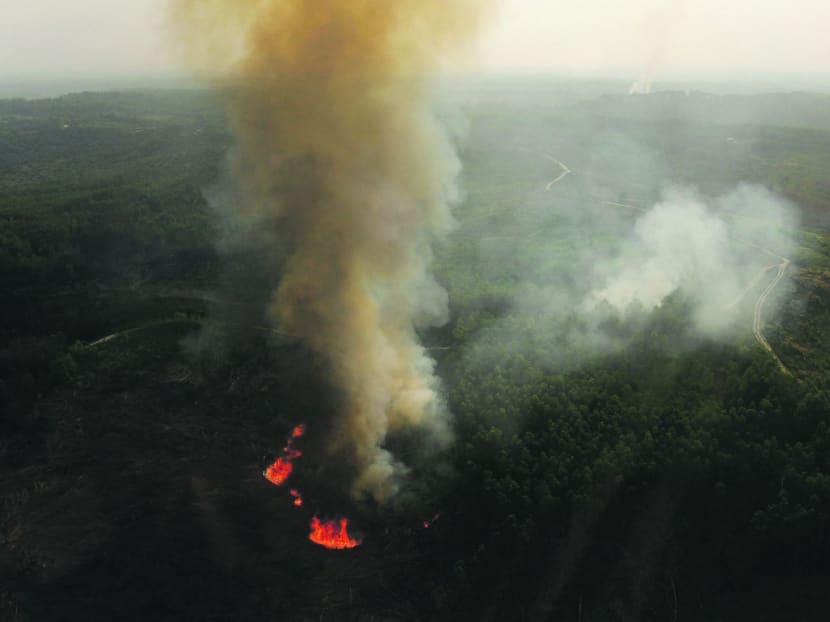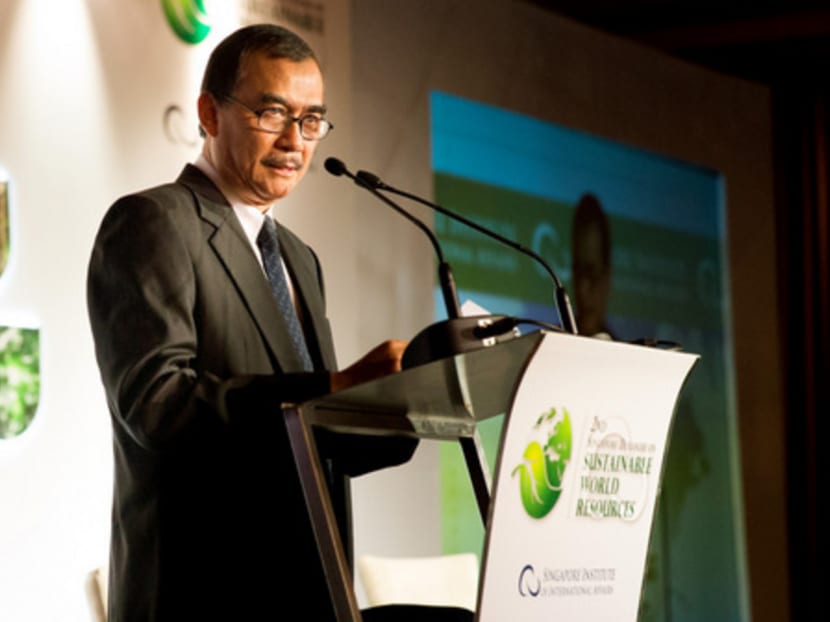Indonesia extends forest-clearing freeze
SINGAPORE — Indonesia yesterday (May 13) extended a forest-clearing moratorium, in a move likely to go some way in curbing the illegal burning of Indonesian forests that has been cited as a key cause of recurring haze in the region.


SINGAPORE — Indonesia yesterday (May 13) extended a forest-clearing moratorium, in a move likely to go some way in curbing the illegal burning of Indonesian forests that has been cited as a key cause of recurring haze in the region.
Indonesia first introduced the moratorium on issuing permits to clear peat and primary forests in May 2011 and it was slated to run for only two years. Then-President Susilo Bambang Yudhoyono extended it in 2013 on a temporary basis for a further two years. As the moratorium was due to expire yesterday, President Joko Widodo signed an extension for a further two years.
Speaking to the media yesterday here at the sidelines of a sustainability forum, Indonesian Deputy Minister for Environment Degradation Control and Climate Change Arief Yuwono stressed that Jakarta is committed to continue tackling environmental and climate change challenges and also highlighted that Indonesia is seeking to host a regional coordinating centre to monitor forest fires and transboundary haze,
“We have learnt from the second period of implementation. Some issues will need to be addressed,” said Mr Yuwono, citing for example the need for more detailed maps to the scale of 1:50,000 at the national level to better monitor forest clearing.
“It will take two to three years for the maps to be completed but we are keen to speed things up.”
Another issue that needs to be addressed is how the moratorium can be tied to other regulations in Indonesia for better enforcement, Mr Yuwono told media at the Ritz-Carlton Millenia Hotel, where he had delivered the key note address at the Second Singapore Dialogue on Sustainable World Resources earlier.
In his address, Mr Yuwono stressed that Jakarta is committed to sustainable development. This is reflected, he said, in the vision and mission of Mr Widodo’s administration for the next five years, which is “Toward Indonesia’s sovereignty and self-fulfillment based on solidarity action”.
Transboundary haze has been a recurring problem for the region and illegal burning of Indonesian forests has been cited as a key cause of the annual phenomenon. Singapore experienced its worst bout of transboundary haze in June 2013 when Pollutant Standards Index levels skyrocketed to an unprecedented 401.
When asked by TODAY about the concrete steps taken by Indonesia to operationalise the haze monitoring system under the ambit of the Association of South-east Asian Nations (ASEAN) Agreement on Transboundary Haze Pollution recently ratified by all 10 member states, Mr Yuwono highlighted that Indonesia has offered to host a regional coordinating centre to monitor forest fires and haze.
“The centre is for assessing (the situation) and making decisions in terms of forest fires,” he said.
Indonesia will be fleshing out its proposal for further discussion during a series of meetings on transboundary haze pollution at both the technical working group and ministerial levels between July and September.
Malaysia, however, has also offered to host the coordinating centre.
Responding to TODAY’s query on the strengths and weaknesses of Indonesia’s offer to host the centre, Mr Yuwono replied: “We try to look at all the possibilities and various modalities (for hosting the centre). Let’s give everybody a chance.”
But until the coordinating centre is set up, Indonesia will be focusing its efforts on preventive measures to help local governments and communities set up patrol groups to spot forest fires and stand by to deal with forest fires quickly before they get out of hand.
On climate change, Mr Yuwono said Mr Widodo’s administration will “continue the previous policy” put in place by Mr Yudhoyono.
Under Mr Yudhoyono, Indonesia pledged to cut greenhouse gas emissions by 26 per cent in 2020, rising to 41 per cent contingent on provision of support by international partners.
The Deputy Minister added that Indonesia was in the midst of preparing its pledge for the new post-2020 global climate change regime and is likely to meet the pledge submission deadline of October to the United Nations Framework Convention for Climate Change Secretariat.






